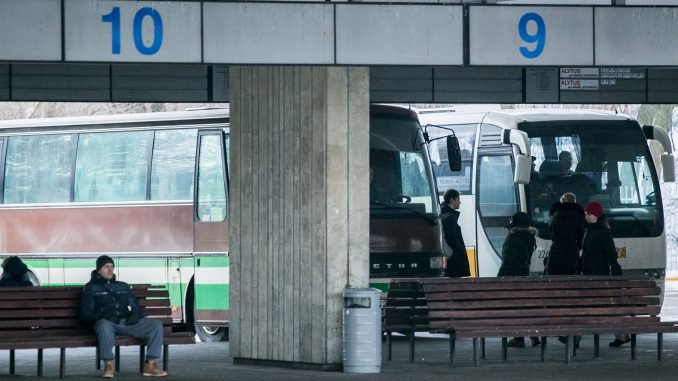
“The current privately-owned bus terminal, which depends upon Lukoil, is not managed properly, in my view. It should be of an entirely different level. Unfortunately, the private owner is incapable of making the necessary decisions. The other reason is that having the second terminal would make sense of a city of the size of Vilnius. I want to emphasize – the second terminal, it is not a forced closure, as the station is privately-owned. There is the need for a second station,” the mayor told BNS.
The Vilnius bus terminal, located in central part of the city, is operated by businessmen Andrey Paleichik, son of Ivan Paleichik, the former owner of Lukoil Baltija filling station chain. BNS was unable to reach him on Monday.
In Šimašius’ words, the current station’s advantage lies in its proximity to the railway station and convenient access from southern and southeastern Lithuania, however, the major passenger flows do not come from Minsk or southern Lithuania but, instead, from western and northern directions. The majority of Vilnius residents taking buses to other cities live in the northern part of the city.
In search for a new location of the station, two criteria were considered, namely, proximity to the bypass and a Vilnius public transport hub, said Šimašius.
“We have found a good place where the station would not be pressed in between residential buildings and have enough space, it would be further – in the direction of the Pilaitė neighborhood, close to the crossing of Pociūno Street and Pilaitė Avenue. All we have to do is settle the transport hub issue to avoid traffic congestions,” he added.
In the mayor’s words, owners of the current station should take steps amid the competition and launch a reconstruction project.

Be the first to comment